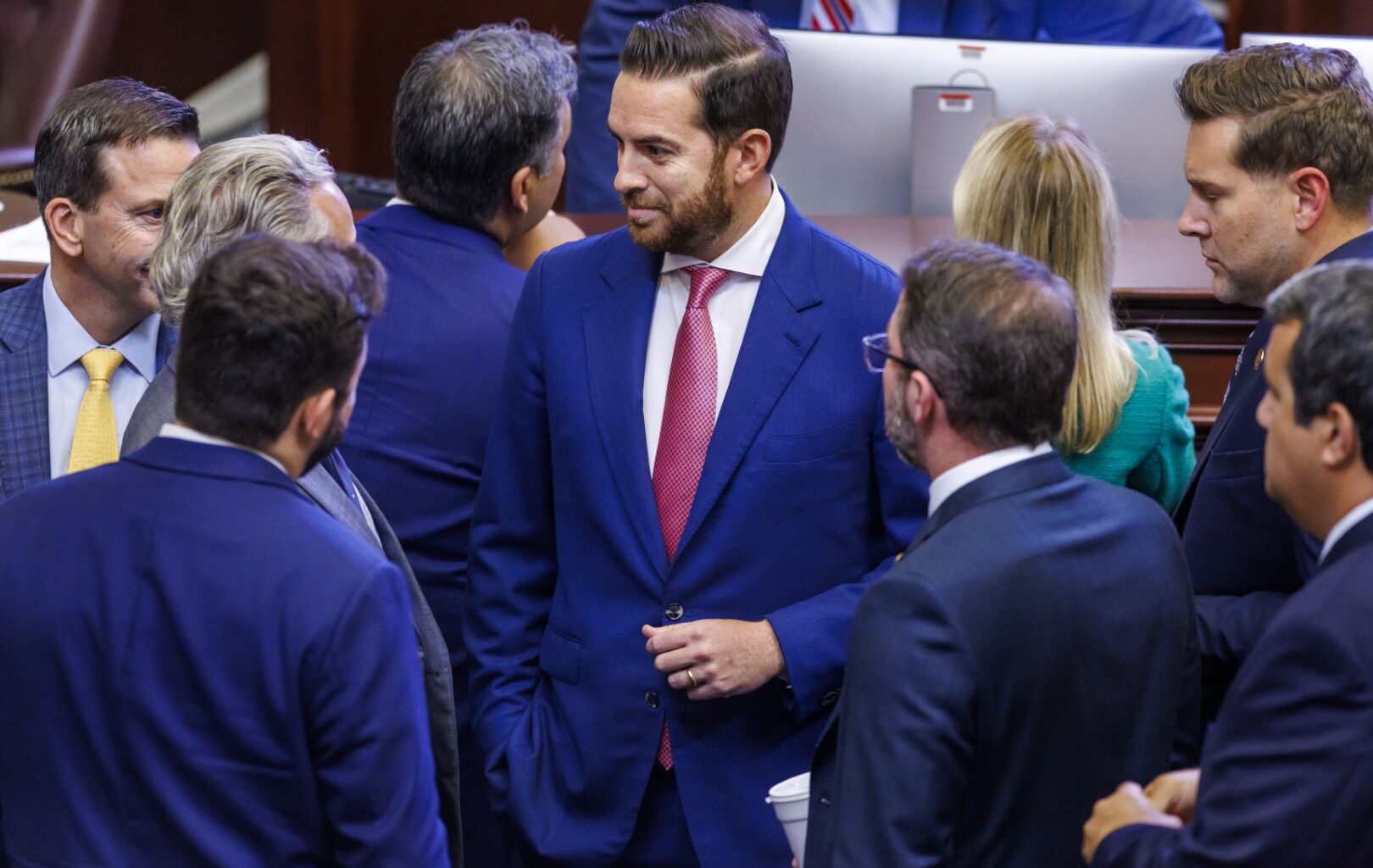Florida voters could get a shot in next year’s Midterm election at reshaping how local governments can levy property taxes.
House Speaker Daniel Perez has unveiled a suite of property tax measures, shaped by the chamber’s Select Committee on Property Taxes, that he intends to advance “through the process” in Tallahassee.
After that, he said, voters — not lawmakers — will be able to choose “some, all, or none” of the options on the 2026 ballot.
“If we have faith in the voters to elect us, we should not be afraid to let them be a part of the conversation about the taxes they pay,” Perez wrote in a Thursday memo to House members.
Perez emphasized two common features across the proposals: None would allow cuts to law enforcement funding, and all would exempt school taxes, which supply roughly 46% (about $21 billion) of school funding.
The joint resolutions would go directly to voters without implementing bills, as lawmakers would only craft statutes after knowing which measures pass.
The bills include:
— HJR 201 by Rep. Kevin Steele: Eliminates non-school homestead property taxes outright. If approved, homeowners would no longer pay city/county non-school levies on their primary residence.
— HJR 203 by Rep. Monique Miller: Phases out non-school homestead property taxes over 10 years by adding a new $100,000 exemption each year to a homeowner’s non-school tax base. After a decade, the non-school portion on homesteads would be fully exempted.
— HRJ 205 by Rep. Juan Porras: Exempts Florida residents over 65 from paying non-school homestead property taxes.
— HJR 207 by Rep. Shane Abbott: Creates a new homestead exemption for non-school taxes equal to 25% of a home’s assessed value. This broad exemption would cut bills for current homeowners and aid first-time buyers entering the market.
— HJR 209 by Rep. Demi Busatta: Establishes a property insurance relief homestead exemption by granting an additional $100,000 non-school exemption to homestead owners who maintain property insurance, linking relief to insured, more resilient homes.
— HJR 211 by Rep. Toby Overdorf: Eliminates the cap on “portability” of Save Our Homes (SOH) benefits, allowing homeowners to transfer their accumulated SOH differential to a new primary residence, even when the replacement home is of lesser value, thereby preserving long-built tax savings.
— HJR 2013 by Rep. Griff Griffitts: Slows the growth in the assessed value of non-school homestead property taxes to 3% over three years for homestead property (currently it’s 3% per year) and 15% over three years for non-homestead property (currently at 10% per year).
— HB 215 by Rep. Jon Albert: Makes statutory changes, including requiring a two-thirds vote to increase millage rates and allowing newly married couples to merge their accumulated SOH benefits when establishing a shared household.
Perez said the House “does not need to limit itself to one single plan.”
The new House relief package follows years of discussion about eliminating or reducing ad valorem levies on property owners in the Sunshine State, a major issue for Gov. Ron DeSantis and many state lawmakers. That includes Perez and Senate President Ben Albritton, who said in April that he agrees with those who argue property taxes unjustly charge homeowners in perpetuity for a home they “bought and paid for long ago.”
In his last Session as a state lawmaker, CFO Blaise Ingoglia filed a bill to raise homestead exemptions with House support from Rep. Ryan Chamberlin, who in 2024 carried a bill to excise what he and others have called “the most hated tax in America” from Florida law.
In April, Perez announced a House Select Committee to drill into the matter, offering five starting proposals to get the conversation going. During subsequent talks, several members of the panel urged caution in advancing overly broad measures that could adversely impact smaller, less well-to-do counties and cities.
Those warnings prompted the Legislature to earmark $1 million in this year’s budget to study the potential effects of eliminating property taxes in the state.
DeSantis vetoed the set-aside in June.



